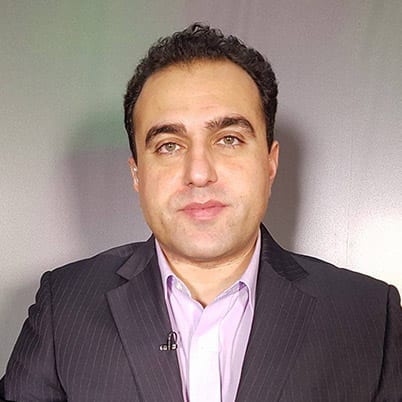The fight for Mosul is in its final weeks and expectations are rising of a successful Iraqi reintegration programme that not only eradicates Daesh from The country but more broadly reverses the tide of sectarianism at a national level.
By any measure, this is an uphill task complicated by multiple inter-related internal and external fissures and conflicts. Even if the Iraqi government is sincerely committed to addressing the power vacuum in the Nineveh province, it faces immediate resistance from entrenched stakeholders with regional and international loyalties.
The cross-pollination of internal and external schisms speaks to the heart of Iraq’s national crisis and brings into sharp relief the existential threats to the Iraqi nation-state. Absent of a major shift in the regional constellation of power, Iraq will continue to go from one crisis to another.
A proud city
The city of Mosul is the bastion of Arab Sunni nationalism in Iraq. The difference between Mosul and other centres of Arab Sunni identity, notably the Western Anbar province, is that whilst identity politics is principally transmitted through tribalism in Anbar, by contrast Mosul harbours a sophisticated, highly politicised and masterfully strategic form of Arab nationalism.
Daesh could not take over and hold onto Mosul for so long without tapping into – and even at some level – commandeering the city’s proud political traditions. Whilst in the West Daesh is principally seen as a highly exclusionary jihadist group, in Iraq at least the group is deeply networked amongst a wide range of local stakeholders with tribal, urban, political, socio-economic and ideological constituencies.
Whilst on the surface at least Daesh suppressed Iraqi and Arab nationalism in Mosul, these forces are likely to rise like a phoenix once military operations conclude.
In post-Baathist Iraq Mosul’s profile as a centre of opposition to both Baghdad and Erbil had been fully cemented by early 2009. At the time an Arab nationalist coalition called Al-Hadba effectively wrested control of the city (particularly the densely populated western part), principally through contesting and winning local elections.
Al-Hadba ran on the unapologetically nationalist ticket of keeping both Baghdad and Erbil out of Mosul. The coalition was stridently poised against the Kurds, principally the Kurdistan Democratic Party (KDP) and the allied Asayish intelligence agency. The latter was frequently accused of running an assassination and subversion campaign in eastern Mosul from 2003 onwards.
Al-Hadba was less successful at containing Bagdad’s influence, notably by failing to eject the Iraqi army and security forces from the city. Whilst the Iraqi army did not behave in an overtly sectarian manner (by for instance brandishing standards emblazoned with Shia imagery and slogans), nonetheless armed elements of the post-Baathist Iraqi state were widely perceived by locals as a foreign occupation force.
Controversy continues to dog Al-Hadba’s founder, and the governor of Nineveh province from early 2009 to 2015, Atheel Al-Nujaifi, principally rumours centred on his alleged collusion with Daesh elements. For his part, Al-Nujaifi has remained resolute, in part due to strong Turkish backing, and is now poised to re-emerge as a major headache for Baghdad.
Regional and international dimensions
In view of developments since June 2014, and more recently the devastation wrought on Mosul since October as part of “Operation Fatah” (conquest), every major element connected to the city’s governance now has a regional and international dimension.
Even the staunchly Arab nationalist camp is divided between pro-Turkish elements (led by Al-Nujaifi) and other factions opposed to creeping Turkish influence on Mosul-related affairs. The introduction of Turkish influence into the mix will inevitably complicate Baghdad’s outreach programmes to leading nationalist factions, particularly in western Mosul.
From Baghdad’s perspective, an alarming potential scenario is a Turkish-sponsored rapprochement between Arab nationalist and Kurdish factions in Nineveh province. Whilst such a rapprochement will inevitably and necessarily be uneasy and short-lived, nevertheless in the short and medium term it will exacerbate centrifugal forces in north-western Iraq.
Even the question of Kurdish independence has a strong Turkish component in view of Ankara’s strong support for the Kurdistan Regional Government, and especially the Erbil-based KDP. Formal Kurdish annexation of the Sinjar Mountains, the Nineveh plains, stretching to even the eastern and northern satellites of Mosul city, will effectively deal a death blow to Baghdad’s ambition to reassert sovereignty in north-western Iraq.
Baghdad’s desperate attempt at forestalling this scenario is made more complicated by intra-Kurdish conflict, principally a territorial and ideological fight between the KDP and the Kurdistan Workers’ Party (PKK). But even this localised conflict – currently centred on the Sinjar Mountains area – is ultimately driven by regional dynamics.
As a Turkish ally, the Erbil-based KDP is effectively duty bound to combat PKK influence inside Iraqi borders. Conversely an embattled PKK presence is welcomed by Iran and its Iraqi Shia paramilitary allies in so far as that militarised presence militates against Turkish ambitions in northern Iraq.
In view of these formidable challenges, it is difficult to imagine how an under-resourced and weak central Iraqi government can lead a successful deconfliction and reconstruction programme in Nineveh province. The local problems – and their regional dimension – are compounded by the Iraqi state’s highest strategic dilemma, notably its competing loyalty and obligations to both Tehran and Washington.
The views expressed in this article belong to the author and do not necessarily reflect the editorial policy of Middle East Monitor.









